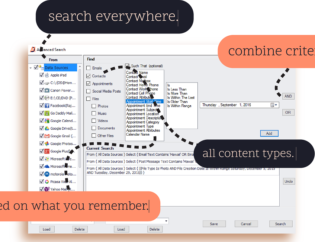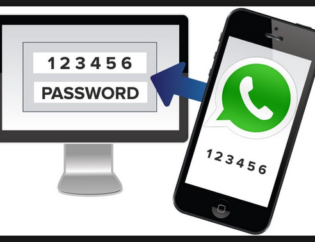
Whether you’re earning your stripes or have years of experience as a freelancer, it’s easy to neglect your personal life and focus on taking care of your business. Keeping a handle on both can feel challenging, but just remember there’s more to life than writing proposals, handling projects and meeting client deadlines.
Getting the work-life balance right takes lots of practice and effort. Start by spending just a few minutes each day implementing the following tips to organize your life in ways that pay off all year long.
Review Estate Planning
Make sure your family enjoys their current lifestyle, no matter what happens, by reviewing your estate plan and getting your important documents in order.
1. Update your will
Review your will, and update it to meet your current wishes. Consider changing it if you got married, divorced, had a child or adopted one.
2. Choose an Executor to handle your estate
An executor is responsible for making sure your final wishes are fulfilled. Download our Estate Planning Checklist to get started.
3. Designate a durable power of attorney
Designate a power of attorney to handle your financial and legal matters if you become temporarily or permanently disabled,
4. Prepare a living will and health care proxy
A living will explains your wishes for artificially sustaining your life. Talk to your family and doctor about your wishes. If you do not have an estate plan in place, or if it’s outdated, make an appointment to see an estate attorney.
5. Appoint a guardian
Choose a guardian for minor children, and then make proper financial provisions for them.
6. Help aging parents get organized
Download our Important Documents Checklist, then gather, organize and store documents you or your aging parents need to handle their affairs. Get more ideas with our article, The Necessity of Managing Personal Financial Documents for Aging Parents.
7. Review insurance policies
Update beneficiary designations on your insurance policies, especially after a marriage, divorce, adoption or death. Don’t forget policies your parents bought on your behalf or policies from your first job. There is over $1 billion in unclaimed life insurance funds due to forgotten or misplaced insurance policies.
8. List your digital assets
Include usernames, passwords, security questions/answers and locations for all online and social media accounts. Include details about accessing your computer, laptop, external hard drives, mobile phone and cloud information. Download a free copy of our Fillable Desktop Password Manager to help keep track of this information. Give a copy to your executor and store a copy in a fireproof safe.
9. Make final arrangements
Download our Bereavement Checklist to assist you in making final arrangements.
Prep for Taxes
Finding ways to prep year-round gives you a way to enjoy all those tax benefits of being a freelancer!10. Gather receipts and important documents Create files at the beginning of the year so everything is right at your fingertips when you’re ready to file. Include out-of-pocket medical expenses, prescriptions, mortgage interest statements and college education expenses.
11. Keep a file for tax-deductible charity donations
If you give money to a church or a non-profit organization, keep the receipts for calculating itemized deductions. Ask for an acknowledgment letter for donating unwanted items that tally up to more than $250.
12. Organize your digital filing cabinet
Reduce the amount of paper you must organize and store by requesting paperless statements from financial institutions and utility companies. Download the files in PDF format so you can save on your computer or in the cloud.
13. Stay on top of digital filing
Going paperless means you must be diligent about taking time each month to download statements and file them in a digital filing system on your computer or the cloud. That way, if you need a statement, you can access a digital copy quickly and easily.
14. Shred documents
Free up space by shredding outdated financial statements and personal information, including credit card offers. Consider using a mobile shredding company to come to your home or apartment and shred your personal documents onsite. Check with your local municipality to see if they offer free document shredding for residents.
Evaluate Credit Reports
Identity theft is prevalent nowadays, so keeping an eye on your credit is an important task to handle annually.
15. Request free credit reports
Go to AnnualCreditReport.com, the official site authorized by federal law, to download one free credit report every 12 months from Experian, TransUnion, and Equifax. Review the credit report for erroneous information. Contact the credit agency immediately if you see errors. Ideally, order one credit report from each of the three bureaus every four months so you stay on top of changes.
16. Sign up for a credit freeze
A credit freeze, also known as a credit lockdown, prevents companies from accessing your credit report without your permission. This includes companies offering credit cards and loans.
Protect Online Data
Keeping your personal online data private is key to safely using the Internet.
17. Opt out of data collection
Stop data brokers such as Acxiom, Experian and Epsilon from collecting personal information –– without your knowledge –– from the websites you visit. Learn how to opt out in our article, Six Ways to Protect Your Personal Data.
18. Turn off Internet browser cookies Cookies are small text files used by some websites to monitor your history and online preferences. Follow the directions in our article to turn these off in your web browser.
19. Stop interest-based ads
Interest-based ads that pop up on your screen after you shop online come from information gathered by data broker companies. Follow our instructions to get rid of these ads.
20. Create unique passwords to keep data safeWhenever you set up a new account, don’t use the same password. Instead, use a password generator to create unique multi-character passwords. Keep track of your login information with our free Fillable Desktop Password Manager.
21. Create fictitious accounts
Use fictitious personal information when online shopping to help avoid identity theft. For instance, set up Yahoo or Gmail email addresses for use when shopping online.
Organize Space and Time
Give yourself some breathing room by tackling those piles of documents and belongings.
22. Remove stuff
Clean out your home and office and donate items you no longer need.
23. Organize paperwork
Sort, copy and store difficult to replace documents, including mortgage records, contracts and wills, in a fireproof, weatherproof safe or filing cabinet. Store the rest, such as tax documents, insurance claims and Explanation of Benefits (EOBs), in a filing system in your home or office.
24. Use mobile apps to stay organized
Stay organized with your cell phone or tablet. Our picks include Intuit Mint for ways to save money, budget and keep track of finances in one place. Learn more on how Mint can help organize your life. Keep track of your personal health with iBlueButton or HealthVault.
Get Ready to Travel
Should your schedule include travel, use these tips to start prepping now to avoid last minute delays.
25. Join loyalty programs
Sign up now for hotel and airline loyalty programs that result in free flights or upgrades, early check-ins and room upgrades. Review existing accounts to make sure no one has siphoned away your points.
26. Check on travel insurance
Find out if your insurance carrier provides coverage for medical emergencies or evacuations when you’re in a different country. Your credit card may also offer this coverage.
27. Enroll in the Smart Traveler Enrollment Program (STEP)
With heightened security and safety concerns around the world, signing up with STEP is a “must do.” Enrollment helps the State Department locate or alert you in the event of an emergency.
28. Give yourself credit!
Finally, don’t give yourself a hard time about what you didn’t accomplish in the past. Instead, celebrate the accomplishments you’re achieving right now. Then, start looking forward to what you’ll tackle the rest of the year to get organized and back in control of your time.
Implement these tips, and you’ll discover the peace of mind gained is worth all of the effort. Organizing important documents and personal stuff is rewarding in other ways, too, such as enjoying more time with family and friends and feeling better equipped to handle life’s unexpected events. It’s all about regaining balance so you spend more time doing what you love in all areas of your life.
Many of these tips were taken from No Time Like Now, A Guide To Organizing Your Life’s Traditional and Digital Information. The booklet is available in PDF or print format.










